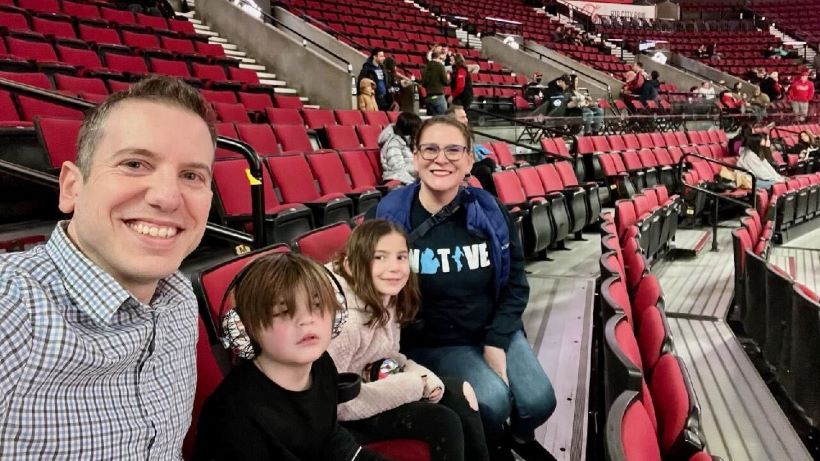The other day I had a conversation with someone about the point at which a person officially becomes a “native” of a place. In the literal sense, the word comes from the same Latin root that means “to be born.” By that definition, I’m a native of Detroit, Michigan; Duncan and Shiri are natives of Dallas, Texas; and Matan is our sole Portland, Oregon native. However, our family has lived in Portland now for nine years, and Shiri only spent the first 10 months of her life in Texas. So is Shiri also native to Portland? And will we ever be?

For our family, Portland is the place we’ve lived the longest collectively, and we call Portland and CNS home because this is where everything feels familiar and where we’ve built a community. So perhaps, we’re a native family unit? And yet, plenty of Jewish families have been here for generations, so we don’t feel like natives in comparison. So when does that milestone moment occur? The Torah actually anticipates this question as the Israelites continue their journey toward a land they’ve not inhabited in multiple generations.
Parshat Eikev, which we read this week, explores the notion that God might or might not respond to bargains. We learn of the blessing and reward you receive if you keep the laws of the Torah and of the consequences for those who don’t follow those laws. The Torah recaps the lessons learned from the Golden Calf, the breaking of the first set of tablets, and Moshe’s prayer for the people. We finally receive the second section of the Shema, followed by a clear warning to guard the Torah and its commandments.
In chapter 10, verse 19, the Torah commands us to befriend the stranger because we were strangers in Egypt. The word used in Hebrew for “stranger” is ger. In contemporary Judaism, this word is used for someone who has converted to Judaism, but in everyday modern Hebrew, the verb also means to live somewhere. Why does this word hold both meanings? Because someone who is new to a community should be welcomed as though they’ve lived there forever. To put down roots is to join in the way of life of a place as well as to embrace the traditions and values that sustain that place.
The conversation I described at the beginning lent itself to questions about the different ways in which one can be welcomed into a community and the sense of belonging that comes when you feel accepted and included. Parshat Eikev invites our communities to explore what radical hospitality looks like and how we might make every person in our congregational family feel not as a stranger, but as a native.



